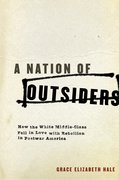That ugly Americanism? It may well be British.
By Dennis Baron
Matthew Engel is a British journalist who doesn’t like Americanisms. The Financial Times columnist told BBC listeners that American English is an unstoppable force whose vile, ugly, and pointless new usages are invading England “in battalions.” He warned readers of his regular FT column that American imports like truck, apartment, and movies are well on their way to ousting native lorries, flats, and films.
Engel’s tirade against the American “faze, hospitalise, heads-up, rookie, listen up” and “park up” got several million page views




















